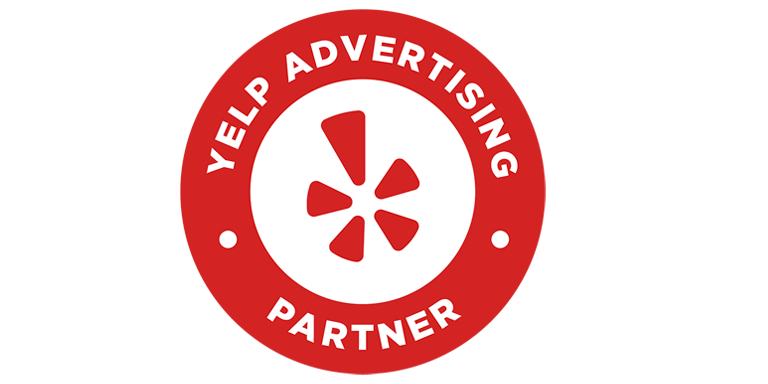For more than a decade Yelp was an annoying dilemma for local businesses and digital marketers. Yelp telemarketers relentlessly called retailers, restaurant owners and service businesses pitching monthly advertising contracts. Local business owners understood the power of Yelp but resented spending money with a company that so easily influenced their clientele.
It always seemed like the first review was positive and the second, negative. A company could have ten 5-star reviews and only one negative review, but somehow the bad review always surfaced in the second position. Yelp sales reps never insinuated that paid advertising would influence reviews, but it sure seemed like the algorithm rewarded advertisers. Instead the paid advertisement real estate took the top position, pushing down all customer reviews, including the negative ones.
For business owners with review problems, Yelp advertising felt like a $400 monthly tax with vague benefits. They paid the tax, hoping to receive preferable treatment in review order, and maybe some phone calls too.
In 2018 Yelp fundamentally changed their approach to advertising sales and review management. Instead of cold calling busy business owners, the company turned their attention to advertising agency partnerships. It was a smart move on Yelp’s part:
- Google’s expensive click rates for many local companies: Business Services ($58.64), Lawyer ($54.86), Asset Management ($49.86), Insurance ($48.41), Cleanup & Restoration ($47.61), Rehab ($46.14), Medical Needs ($40.73), Loans ($40.69), Plumber ($39.19), Pest Control ($38.84), Mortgages ($36.76Ban) and Banking ($31.43).
- Agencies providing search engine marketing and pay per click services through Google, and Bing to some degree, would be natural partners.
- Agencies were open to new advertising opportunities while business owners were indignant towards Yelp.
Yelp now devotes considerable resources to helping agencies and their clients. Highly skilled Yelp reps, based in the USA, are assigned to agencies like Royle Media, providing an incredible level of support. They work at the account level, helping develop strategies and plans to increase business for local businesses. Their training is excellent.
Most importantly, Yelp provides access to their platform so agencies can upgrade company profiles, setup and manage their own pay-per-click campaigns. Yelp also provides access to their API so advertising data can be imported into client dashboards. It is truly remarkable how Yelp has restructured their business.
This is completely opposite of Google who has focused on “going direct” to small business owners, side-stepping advertising agencies and media partners. Offshore telemarketers peddle the Google Guaranteed advertising program to local service businesses. They introduced the program with robo calls, cutting the human costs.
In September 2020, Google made it more difficult for agencies to optimize campaigns by reducing visibility into ad campaigns. Clicks for lower volume keywords were removed from reports. At the same time offshore “Google Reps” are aggressively calling advertisers directly, offering to “fix” their campaigns with “dynamic bidding” strategies that remove humans from the buying process. One offshore rep told me “there is no need for an agency” with their help. That is akin to trusting the fox to watch the hen house.
Google has enjoyed a monopoly with both organic and paid search for over a decade. The company’s search results are trusted as the tech behemoth and has eliminated competitors like Yahoo and Overture. Google dominates all search segments, whether it is B2B or B2C, small local businesses or global enterprise services. In many regards YouTube is also a search engine, integrated into Google’s video search results.
While Google has been feasting on paid search revenues, Yelp has been growing into the dominate platform for local business reviews. With 77 million monthly users and 4.3 million verified business profiles, Yelp has become a juggernaut for consumers searching for retailers, restaurants and local service providers. With this much traffic, the company’s tack from reviews to paid search results is a natural transition. They have reached critical mass, and now it is time to reap the revenue rewards.
Paid search is a mature business and Google is trying to milk every last penny out of the platform by raising pay-per-click rates, offshoring sales and eliminating agency partners. Yelp is taking advantage of Google’s profit-maximizing tactics with better pricing, customer service and cultivating long-term agency relationships. In terms of local search, Yelp is the opportunity while Google is the over-priced monopoly.
Businesses world-wide, in every segment, benefit from search competition with lower advertising costs. Hope for new options are by vertical. Yelp is making inroads into local paid search. Trip Advisor is chipping away at the travel and leisure categories. Can Bing increase market share? B2B advertising is in desperate need of an alternative to Google. In many regards Amazon is a search engine, and much more predatory than Google. Mostly likely Alphabet will need to loosen their stranglehold in search to avoid anti-trust regulations and possible break-up. This is good for business and consumers alike.
Royle Media uses both Google and Yelp for paid search and partners with both companies. As media buyers, our job is researching and recommending the most efficient advertising buys. For retailers, restaurants and local service companies, we are finding Yelp to be the better buy.
